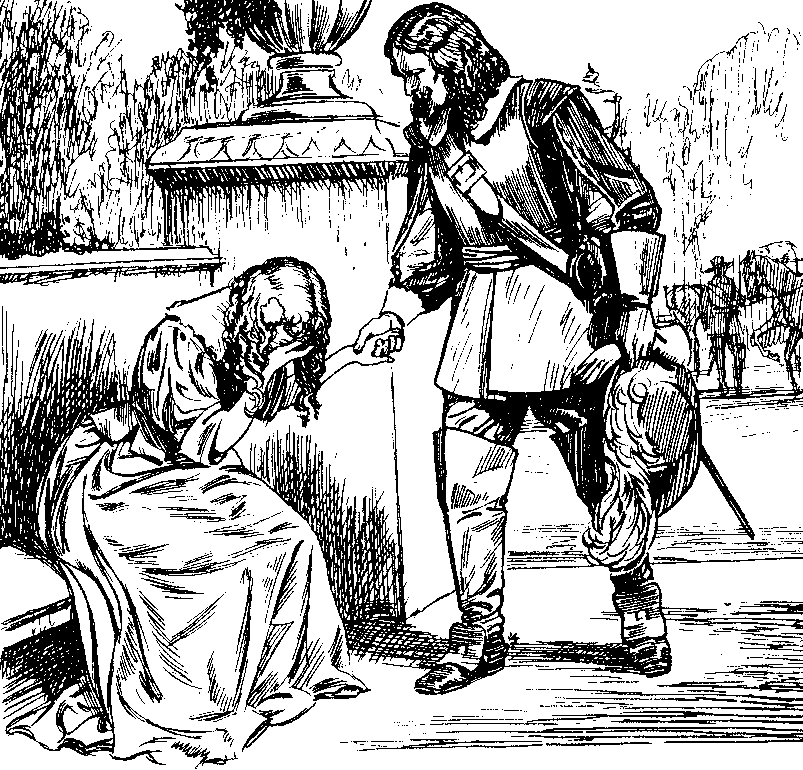 Richard Lovelace (1618-1657) was an English poet and Cavalier who lived a legendary life as a soldier, lover, and courtier. He wrote poems to praise friends or fellow poets, to give advice in grief or love, to define a relationship, to articulate the precise amount of attention a man owes a woman, to celebrate beauty, and to persuade to love. Persecuted for his unflagging support of King Charles I, he was imprisoned and died in poverty; but not before writing two of the age’s most melodic and moving lyrics, To Althea, from Prison and To Lucasta, Going to the Warres.
Richard Lovelace (1618-1657) was an English poet and Cavalier who lived a legendary life as a soldier, lover, and courtier. He wrote poems to praise friends or fellow poets, to give advice in grief or love, to define a relationship, to articulate the precise amount of attention a man owes a woman, to celebrate beauty, and to persuade to love. Persecuted for his unflagging support of King Charles I, he was imprisoned and died in poverty; but not before writing two of the age’s most melodic and moving lyrics, To Althea, from Prison and To Lucasta, Going to the Warres.
To Lucasta, Going to the Warres
Tell me not, Sweet, I am unkind
For, from the nunnery
Of thy chaste breast, and quiet mind,
To war and arms I fly.
True, a new mistress now I chase,
The first foe in the field;
And with a stronger faith—embrace
A sword, a horse, a shield.
Yet this inconstancy is such
As you too shall adore;
For, I could not love thee, Dear, so much,
Loved I not honour more.
A la Chabot
Object adorable of charms!
My sighs and tears may testifie my harms;
But my respect forbids me to reveal.
Ah, what a pain ’tis to conceal!
And how I suffer worse then hell,
To love, and not to dare to tell!
Song To Amarantha, That She Would Dishevel Her Hair
Amarantha sweet and fair
Ah braid no more that shining hair!
As my curious hand or eye
Hovering round thee let it fly.
Let it fly as unconfin’d
As its calm ravisher, the wind,
Who hath left his darling th’East,
To wanton o’er that spicy nest.
Ev’ry tress must be confest
But neatly tangled at the best;
Like a clue of golden thread,
Most excellently ravelled.
Do not then wind up that light
In ribands, and o’er-cloud in night;
Like the sun in’s early ray,
But shake your head and scatter day.
See ’tis broke! Within this grove
The bower, and the walks of love,
Weary lie we down and rest,
And fan each other’s panting breast.
Here we’ll strip and cool our fire
In cream below, in milk-baths higher:
And when all wells are drawn dry,
I’ll drink a tear out of thine eye,
Which our very joys shall leave
That sorrows thus we can deceive;
Or our very sorrows weep,
That joys so ripe, so little keep.
